- Home
- Hugh Howey
The Walk Up Nameless Ridge Page 2
The Walk Up Nameless Ridge Read online
Page 2
6
The highlanders of Eno have a saying about climbing alone: The winds seek out the solitary. And sure enough, with Hanson dropping back to camp—hopefully dropping back to camp—the winds came for me and shoved my chest for being so bold. With my oxygen running low, the mask became an impediment to breathing, something to catch my coughs. Adjusting the top of the mask against my goggles, fingers frozen stiff, I let the wind howl through a crack, invigorating me with the cold. The gap sang like the sound a puff makes across the mouth of a bottle. This whirring howl was a sort of musical accompaniment. It made me feel less alone. The dwindling oxygen made me feel crazy.
When I came across Shubert, I thought he was already dead. The snow was covering him, and the ridge here was perilously narrow. Solid rock stayed dusted with snow and ice, otherwise it felt the ridge itself should be blowing away.
Shubert stirred as I made my slow and agonizing way around him. He was faintly swimming toward the summit, clawing through the ice, throwing his axe forward. I stopped and knelt by the young and powerful climber. His suit made no noise. It must’ve given out on him, leaving him alone and under his own power. My thoughts were as wild as the wind, disturbed by my air-starved mind. I thought of Cardhil, and how something so reliant on its mechanical bits held any hope for rising above camp 7. I rested a hand on Shubert’s back to let him know he wasn’t alone. I don’t know that he ever knew I was there. He was still crawling, inch by inch toward the summit, as I trudged along, head down, mask singing a sad lament. If I made the top and got home, I decided I would name that ridge after him. I was already dreaming not just of being a legend, but the awesome humility I would display even so. It was delusion beyond delusion. I was dying, but like Shubert, I cared only about the next inch.
The oxygen ran dry as the sun broke. My headlamp had grown feeble anyway, frosted with ice and with its battery crippled by the freezing temperatures. This was my last sunrise, I was fairly sure. Cutting through the shark’s teeth of peaks that ran the breadth of this alien continent, the dull red glow was empowering with its illusion of warmth. Once that large foreign star lifted its chin above the most distant of snow-capped crowns, it seemed to rise with a vengeance. It made a mockery of my own agonizing ascent.
It occurred to me in the wan light of dawn that I was the highest man in the universe. Coughing into my mask, I couldn’t feel my legs, but I could at least balance on them. The handful—not quite—of fingers and toes I had left would be gone. But that was optimistic. I could see the summit up the ridgeline. There was no more technical climbing, no ice to work up, no faces or craggy steps, just a long walk on unfeeling stumps. A walk to a grave that stood far over all mortal heads.
I found myself on my knees without remembering falling. The snow was thin here. It blew off sideways and was just as soon replaced. There would be no flags ahead, no weather stations, no books to scribble in, no webcams showing a high sunrise to millions of net surfers. It was just a lonely and quiet peak. Not a footstep. Not ever. Untrammeled earth, a thing that had grown exceedingly rare.
The people of Eno had their own name for Mallory. Locals always did. It translated to Unconquerable, but of course nothing was. It was always a matter of time, of the right gear, the right support teams, all the ladders and lines and camps and bottles put in by hardworking sherpas.
I was on my hands and knees, mask howling, lightheaded and half-sane, crawling toward my destiny. And I missed Hanson. I wanted him there. I missed him more than my wife and kids, who I would never see again. There was my grave up ahead, a bare patch of rock where snow danced across like smoke, like running water, like angels in lace dresses.
I wondered if my body would lie there forever or if the wind would eventually shove me off. I wondered this as I reached the summit, dragging myself along, my suit giving up the last of its juice. Collapsing there, lying on my belly, I watched the sun rise through my mask. And when it frosted over, and my coughing grew so severe I worried those were flecks of purple lung spotting my vision, I accepted my death by pulling the mask free to watch this last sunrise, this highest and most magnificent sunrise, with my very own eyes.
7
The tallest climbs, often, are the easiest. All the great alpinists know this. Tell someone you’ve summitted Mokush on Delphi, and the mountaineer will widen his eyes in appreciation while the layman squints in geographical confusion. The steep rock approaches of Mokush more than make up for the lack of elevation. And of the several hundred who have reached the top—Hanson and I among them—thousands have perished. Few peaks have so bold a body count and so brief a list of conquerors.
On the other hand, list the highest peaks of the eight old worlds, and most will whistle in appreciation. Everyone knows the great climber Darjel Burq, the first to top the tallest mountain on each of the civilized worlds. But other climbers know that Darjel was hoisted up many of those by sherpas, and that he never once assaulted the great Man Killers who stand along the shoulder of those more famous giants and claim the more daring of men.
This was a peak for climbers like Darjel, I thought, lying on the top of the universe and dying. Here was a peak for the tourists. One day—as I coughed up more of my lung, pink spittle melting the frosting of snow on my mitts—the wealthy would pay for a jaunt to the top of Mallory. The drugs and heatsuits and blood doping would improve. In another five years, I would have made this climb and lived to tell the tale. But not today. And anyway: in five years, it would not have mattered. I wouldn’t have been the first.
The sun traveled through its reds and pinks until the frozen skin of Eno was everywhere golden. It was a good place to die. And when my body was found, they would know I’d made it. Unless it was many years hence and the wind and blizzards had carried me off to a secret grave, they would know. Such had been Mallory’s fate, the great and ancient climber whose name graced this peak. I was of those who never believed Mallory had made it to the top of Earth’s highest summit. But no longer. The madness of my oxygen-deprived brain, the sad glory of my one-way victory, and suddenly I knew in that very moment that Mallory had climbed to the top of my homeworld. He had simply never planned for the climb back down.
Sleep came amid the noisy and blustery cold. It was a peaceful sleep. My breathing was shallow and raspy, but at least the cough had gone away. I woke occasionally and looked an alien sun in the face, whispered a few words to that orange ball of fire, and allowed the ice to hold fast my lids once more.
I dreamed of my wife. My kids. I went back to the party my office had thrown, all the confetti and balloons, the little gifts that were well-meant but that I would leave behind as useless. Coffee and dried meals, boot warmers that were suited for lesser hikes, the kind of gifts that show how little these revelers and kin know of where they are wishing me off to with their gay ribbons and joyous cards.
The mementos, likewise, had been left behind. The picture of my nephew that my sister dearly wanted me to carry to the roof of all the worlds. A dozen of these that seemed so small and light to each giver but added up to difficult choices and considerable weight, and so none of them even made it to basecamp.
I longed for all of them in that moment. Not that I could have dug them out with my dead fingers, but just to have them on my body. In case my preserved form was ever discovered and picked through by future explorers. Just so they would see that these things were there. That I wasn’t so alone.
I woke once more and spoke to the sun, and he called me a fool. His climb was rapid and impressive. And who was I? I was a mortal pretending to do godly things. I had wax for wings. I was already dead, my body frozen, but all the effort of my being, my slowing and cooling blood, the best drugs doctors could pump into me, kept my thoughts whirring. Slowly whirring like gears with their dying batteries. Just one more turn. Another thought.
I woke and spoke to an angel. So small. The world was outsized for her. An angel in a mask, breath fogging it with ice, no tanks on for that final and swift climb of hers.
I passed out again, but I felt the world shudder beneath me. The mountain was rising. They did this, you know. Confounding last year’s climbers by lifting up a fraction more for the next season. Always this: our accomplishments subsiding to time and acclimation. That fear that our former feats were yesterday’s glory. Every year, the mountains moved just a hair higher. And I was likewise now rising and falling, numb everywhere except in my mind. Only in my head, by the jounce of my neck, could I feel the world move.
Ziba was there, a face behind a mask, an angel with no oxygen, laboring down that nameless ridge having summited after me.
And Cardhill, whose ankle had seized, whose gears whirred, whose mind was said to be that of the great climber of the same name, but it was not something I ever believed. Until that moment. And I would never doubt again. It was Cardhill who carried me. And the perfect grace that had seemed inhuman at basecamp felt like a real man to me on that summit. Cardhill staggered and limped along. He cradled me in his mighty and trembling arms.
At camp 7, Hanson tended to me, though he was in no shape to do so. He said my hands were gone. My feet as well. I believed him.
At 6, we notified basecamp. We informed Humphries’ and Shubert’s team that they had perished nobly. The controversy was not in my mind at camp 6. I was weeping frozen tears. I was still dead on that peak, blabbering to alien stars. I had not yet been carried anywhere.
There was no memory of camp 5. I’m not even certain we stopped there. At camp 4, a doctor removed my lips and my nose. It required no instruments. My sherpas were there to congratulate me. The horror of what I’d done was far worse than the horror of what I’d become. I could look at myself in the mirror with no revulsion. To think on myself, though, was to invite black thoughts.
Ziba and Cardhill made it down the mountain ahead of me. I asked Hanson to work the radio, and I tried to form the words with my new face. But it wasn’t my lips that caused problems. It wasn’t my tongue.
At basecamp, at this approximation of civilization, I was provided a glimpse of what awaited me across the worlds. And it did not matter who I told or how often. I wrote in every forum, had letters crafted by those who could form them, who could understand my muted, lipless words, but Ziba, I was told, was already off to explore new worlds. And my exhortations that she be remembered fell on deaf ears. Ridgelines had already been named. And when my wife kissed my new face weeks later, the tears I wept were not for seeing her again but for the misery, the pain, of not having been left there where I deserved to lay, where I could be forgotten, frozen in the vastness of time, spinning lazily with broken wings beneath that great orange and alien star. Beneath that star who alone would ever know the awful truth of my most hollow glory.
Table of Contents
1
2
3
4
5
6
7

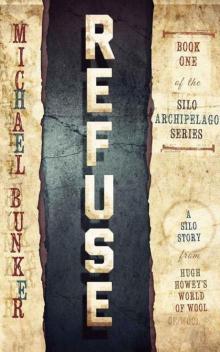 Refuse (The Silo Archipelago Series Book 1)
Refuse (The Silo Archipelago Series Book 1)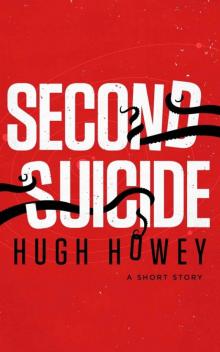 Second Suicide: A Short Story
Second Suicide: A Short Story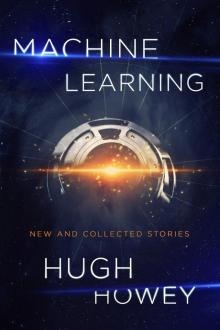 Machine Learning: New and Collected Stories
Machine Learning: New and Collected Stories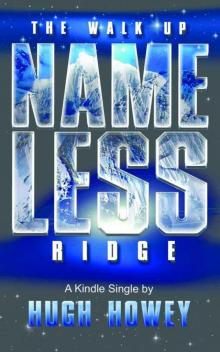 The Walk Up Nameless Ridge
The Walk Up Nameless Ridge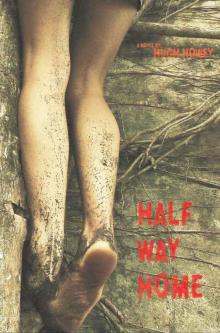 Half Way Home
Half Way Home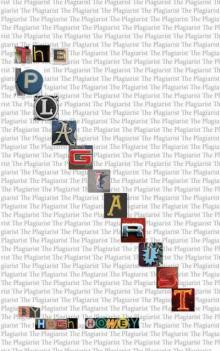 The Plagiarist
The Plagiarist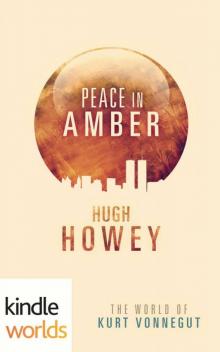 Peace in Amber
Peace in Amber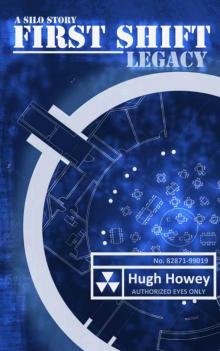 First Shift: Legacy
First Shift: Legacy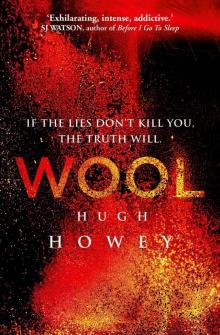 Wool
Wool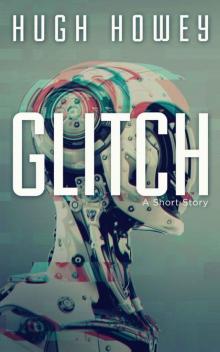 Glitch
Glitch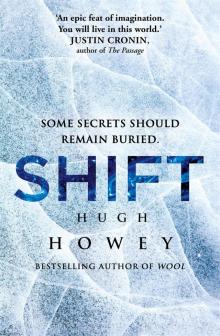 Shift
Shift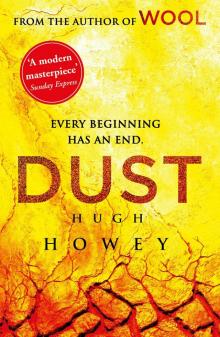 Dust
Dust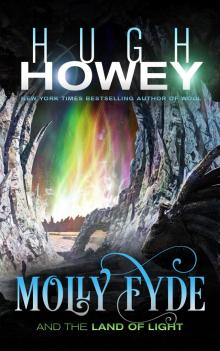 Molly Fyde and the Land of Light
Molly Fyde and the Land of Light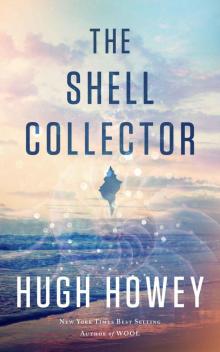 The Shell Collector
The Shell Collector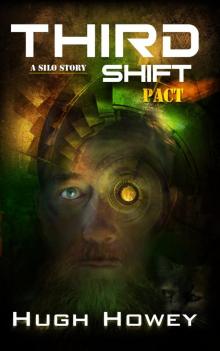 Third Shift: Pact
Third Shift: Pact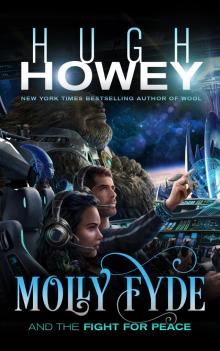 Molly Fyde and the Fight for Peace
Molly Fyde and the Fight for Peace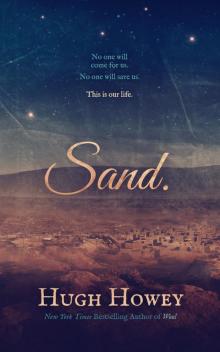 Sand Omnibus
Sand Omnibus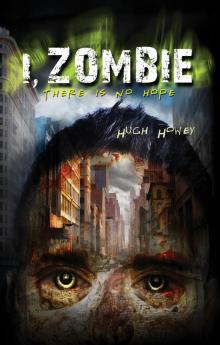 I, Zombie
I, Zombie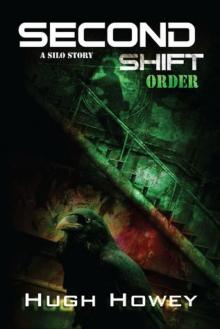 Second Shift: Order
Second Shift: Order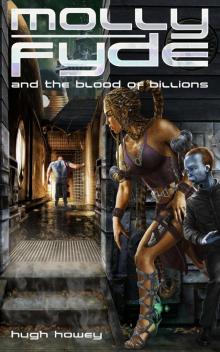 Molly Fyde and the Blood of Billions
Molly Fyde and the Blood of Billions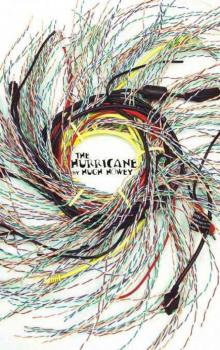 The Hurricane
The Hurricane The Box
The Box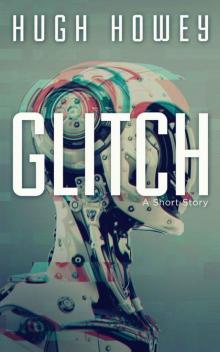 Glitch_A Short Story
Glitch_A Short Story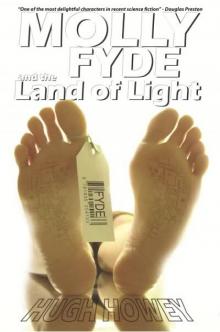 Molly Fyde and the Land of Light tbs-2
Molly Fyde and the Land of Light tbs-2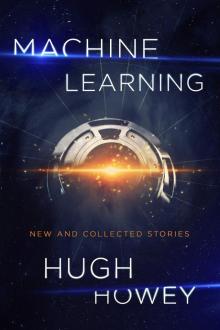 Machine Learning
Machine Learning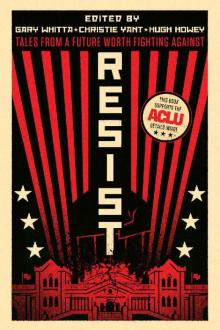 Resist
Resist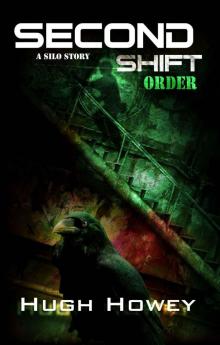 Second Shift - Order (Part 7 of the Silo Series) (Wool)
Second Shift - Order (Part 7 of the Silo Series) (Wool)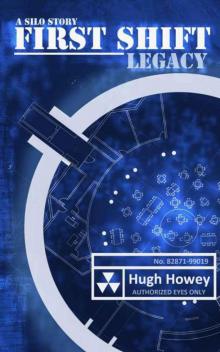 First Shift - Legacy s-1
First Shift - Legacy s-1 Stories on the Go: 101 Very Short Stories by 101 Authors
Stories on the Go: 101 Very Short Stories by 101 Authors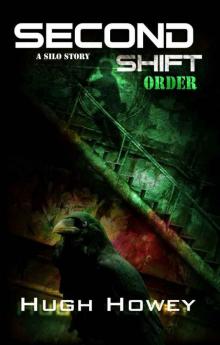 Second Shift - Order s-2
Second Shift - Order s-2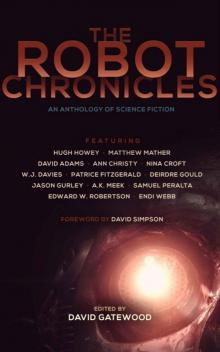 The Robot Chronicles
The Robot Chronicles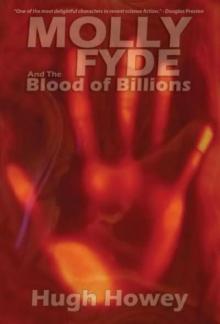 Molly Fyde and the Blood of Billions tbs-3
Molly Fyde and the Blood of Billions tbs-3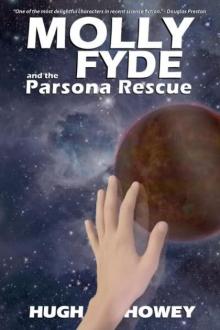 Molly Fyde and the Parsona Rescue tbs-1
Molly Fyde and the Parsona Rescue tbs-1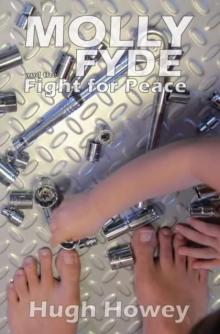 Molly Fyde and the Fight for Peace tbs-4
Molly Fyde and the Fight for Peace tbs-4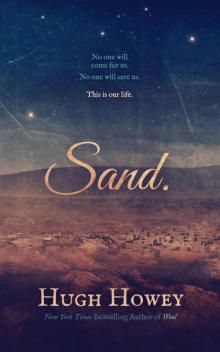 Sand
Sand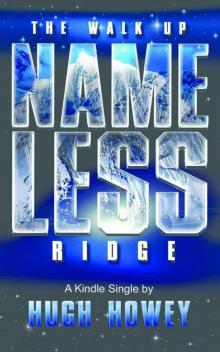 The Walk Up Nameless Ridge (Kindle Single)
The Walk Up Nameless Ridge (Kindle Single) Wool Omnibus Edition (Wool 1 - 5)
Wool Omnibus Edition (Wool 1 - 5)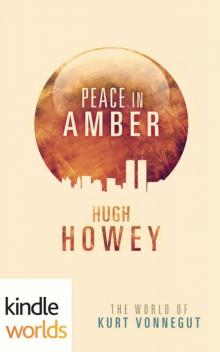 The World of Kurt Vonnegut: Peace in Amber
The World of Kurt Vonnegut: Peace in Amber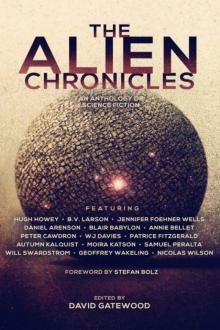 The Alien Chronicles
The Alien Chronicles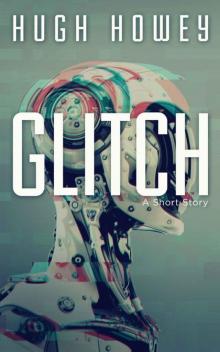 Glitch: A Short Story (Kindle Single)
Glitch: A Short Story (Kindle Single)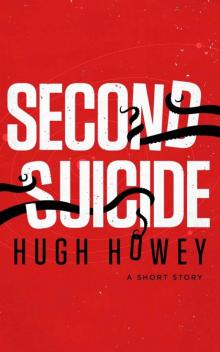 Second Suicide: A Short Story (Kindle Single)
Second Suicide: A Short Story (Kindle Single)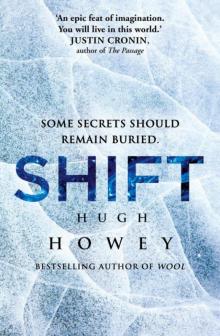 Shift (silo)
Shift (silo)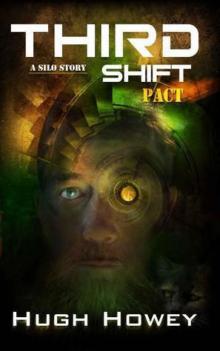 Third Shift - Pact
Third Shift - Pact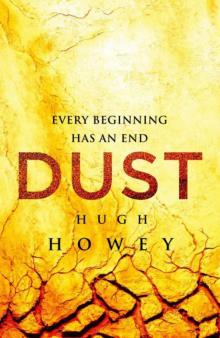 Dust s-9
Dust s-9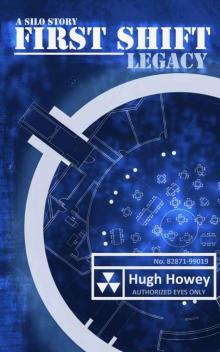 First Shift - Legacy (Part 6 of the Silo Series) (Wool)
First Shift - Legacy (Part 6 of the Silo Series) (Wool)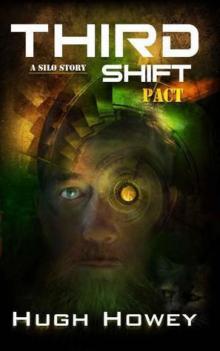 Third Shift - Pact s-3
Third Shift - Pact s-3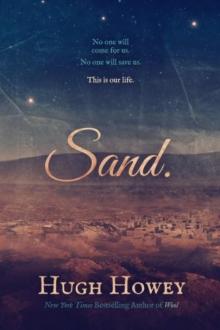 Sand: Omnibus Edition
Sand: Omnibus Edition The Box: A Short Story
The Box: A Short Story